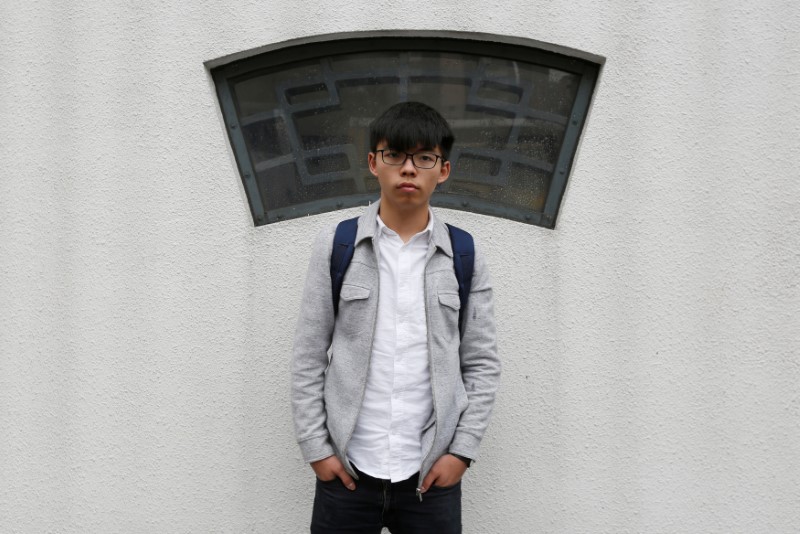By James Pomfret and Benjamin Kang Lim
HONG KONG/BEIJING (Reuters) - When the British handed over Hong Kong to China in 1997, Beijing promised to allow universal suffrage as an "ultimate aim", along with other freedoms, under a "one country, two systems" arrangement agreed with London.
That's not going to happen, well placed sources in Beijing and Hong Kong say, as Hong Kong marks the 20th anniversary of that handover.
China did offer a contentious electoral reform package in 2014, which allowed Hong Kong a direct vote, but only of candidates pre-screened by Beijing. The city's pro-democracy lawmakers vetoed the package, which critics called "fake democracy". And so Hong Kong's next leader was again chosen this year by a small electoral college stacked with pro-Beijing loyalists.
"There will be no second chance," said a source in Beijing with ties to the Chinese leadership, who declined to be named given the sensitivity of the matter. "We can't afford to do it all over again. It's too painful and a waste of time and resources."
A senior Hong Kong official said even if China changed its mind, Beijing wouldn't back down on its requirement that candidates be vetted, effectively shutting out pro-democracy contenders for the top job.
"A (democratically-elected) chief executive who does not get along with the central (government) will be a disaster for Hong Kong," said the source with ties to the Chinese leadership. "It would lead to gridlock ... Hong Kong people will suffer."
The Hong Kong and Macau Affairs Office of China’s State Council did not respond to faxed questions. But Chinese authorities have long stated they respect Hong Kong’s “high degree of autonomy” and are supportive of lawful and gradual democratic development until universal suffrage is realised.
SOWN DISTRUST
The battle for full democracy in Hong Kong has been a defining issue for the city of 7.3 million. It has sown distrust between China and Hong Kong, polarized politics, hampered governance and stoked mass street protests, including the 79-day pro-democracy Occupy movement of 2014 that tried but failed to wrest democratic concessions from Hong Kong and Chinese authorities.
In the process, a young generation has become radicalised, with some agitating for greater autonomy and even independence from China.
Authorities have tried to snuff that out.
In March, Hong Kong police arrested nine activists including a few leaders of the Occupy movement. That came after two pro-independence, democratically elected legislators were kicked out of Hong Kong's assembly late last year.
Beijing's harder line on Hong Kong has been mirrored on the mainland with President Xi Jinping's crackdown on dissent since coming to power five years ago.
Hong Kong's democratic experiment is seen as a litmus test of Beijing's tolerance for eventual political reforms in mainland China, where calls for greater civil liberties and grassroots democracy have been growing, experts say.
Britain acquired Hong Kong island in 1842 after the first of *two "opium" wars during the height of its imperial power and returned it 156 years later to a rising China. Colonial Hong Kong's governor was appointed and Britain did little to promote democracy until near the end of its rule.
INTERNATIONAL PUSH
The pro-democracy movement has lost considerable steam following the crackdown on activists, as well as infighting between various democratic groups.
But the movement has recently stepped up its longstanding international engagement, particularly with Washington.
Last month, Joshua Wong, a skinny, 20-year-old who helped lead the Occupy protests, and veteran democrat Martin Lee told the U.S. Congressional-Executive Commission on China the "high degree of autonomy" promised to Hong Kong had eroded over two decades of Chinese rule.
U.S. Republican Senator Marco Rubio is pushing a "Hong Kong Human Rights and Democracy Act", a bipartisan bill to punish Chinese officials who suppress basic freedoms in Hong Kong.
The campaign by Wong, who was featured in a recent Netflix (NASDAQ:NFLX) documentary, also took him to Taiwan in recent weeks, where 18 pro-independence lawmakers launched a new congressional caucus on Hong Kong, modelled in part on the U.S. initiative. He also travelled to Japan for a lobbying trip this month.
"I'm really optimistic that in the future, we can take this as a reference and just get bipartisan support around the world," said Wong, who is facing a possible five-year jail term on "unlawful assembly" charges.
PROTESTS AHEAD OF XI VISIT
Just days before President Xi Jinping visits on July 1 to mark the 20th anniversary of the handover, Wong and around a dozen activists, all dressed in black, covered a statue of a golden Bauhinia flower considered a symbol of Chinese sovereignty, in black cloth to symbolise what they called the brutality of the Chinese regime.
"One country, two systems a lie for 20 years," Wong and his fellow activists shouted, pumping fists.
Tens of thousands of others are expected to attend various protests when Xi is in town including a July 1 rally with the theme "retake Hong Kong for a democratic government".
"It's time to let Hong Kong people have democracy and universal suffrage," said Wong.
Martin Lee, the 79-year-old barrister widely known as one of the fathers of the democratic movement in Hong Kong said Beijing is trying to "extinguish the fire of democracy that is burning in the hearts of young people".
"But if I were to die today, Hong Kong would be fine with young leaders like that."
